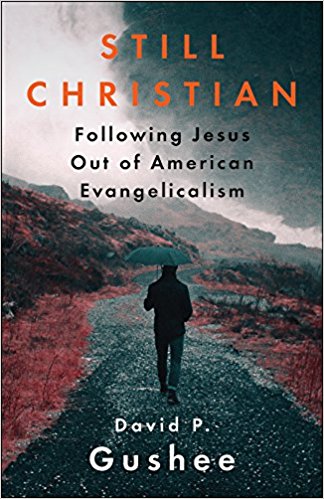Recently the virtual pages of Religion News Service have been graced with further crossfire related to the endless evangelical argument about LGBTQ inclusion.
Jonathan Merritt posted a piece defending evangelical blogger Jen Hatmaker against her evangelical critics, who have treated her to the now-standard exclusion, criticism and rejection since she offered full LGBTQ inclusion.
Conservative Southern Baptist Denny Burk offered the usual rebuttal. His message was that the door is open for those of us who have abandoned clear biblical truth to come back home to orthodoxy; but there can be no compromise with error.
In Jonathan Merritt’s post, he referred to my own work, an October 2014 book called “Changing Our Mind.” In that book, which Jonathan helped make (in)famous with this interview upon its release, I argued step by step that it was possible (and, finally, imperative) for evangelical Christians to change our mind on many aspects of “the LGBTQ issue.”
When I released my book, I was met with the same chorus of rejection from many of the same people who are treating Jen Hatmaker to the same experience today. I should not have been surprised, but was surprised, at the ferocity of the resistance. Publishing that book led to my exile from the American evangelical community.
The good news for me was that my career was by that time not dependent on good standing in the U.S. evangelical community.
It has taken me some time to process fully what has happened to me and what I should make of it. I have had a bit of post-evangelical syndrome, and have laid low for a while.
But now, roughly 30 months later, I am about to offer two kinds of public responses to what I have experienced. You might call them a “micro” and a “macro” response.
At the “micro” level, I have prepared a new third edition of my “Changing Our Mind” book. It will be out in early June. This edition contains a new introduction, a new study guide, and a lengthy new “Response to Critics,” in which I finally engage the main lines of critique that my book — and subsequent interviews and posts — received. (It is not yet available for pre-order. I will alert readers when this changes.)
A highlight of this epilogue includes my acknowledgment that common “evangelical” modes of reading Scripture and undertaking moral discernment will never lead to a fully inclusive posture toward LGBTQ persons. But I then go on to make the case for why I believe those common evangelical modes are inadequate ways both of reading Scripture and discerning moral truth.
At the “macro” level, I have also written a memoir: “Still Christian: Following Jesus Out of American Evangelicalism.” This book, out in August with Westminster John Knox Press, is both a spiritual autobiography and professional memoir. It tells about a confused young man wandering into a Southern Baptist church in the summer of 1978 and emerging four days later as a born-again Christian — and what happened to him in the 40 years after that.
What happened? A love affair with Jesus that for the great majority of 40 years was spent in Southern Baptist and evangelical contexts, until my own sense of moral and intellectual integrity forced me to take stands leading to my exit from those worlds.
Everybody’s story is different. Of course millions of American Christians remain quite happily situated in Southern Baptist and/or evangelical Christianity. I wish them only the best, and am done fighting with them.
But millions of others have made their exits, or had their exits made for them, and now wander in a kind of exile. I think that my story might connect with that of many others who find themselves post-all-of-that, perhaps helping chart a way forward.
I now believe that incommensurable differences in understanding the very meaning of the Gospel of Jesus Christ, the interpretation of the Bible, and the sources and methods of moral discernment, separate many of us from our former brethren — and that it is best to name these differences clearly and without acrimony, on the way out the door.
I also believe that attempting to keep the dialogue going is mainly fruitless. The differences are unbridgeable. They are articulated daily in endless social media loops.
Still, in “Changing Our Mind,” 3rd edition, to discharge my scholarly debts and to be fair to those who have sought to engage my thinking, I attempt one last foray into dialogue with my critics on the LGBTQ inclusion front.
And in “Still Christian,” I give an account of my spiritual journey for any who might want to engage it.
Enjoy!





